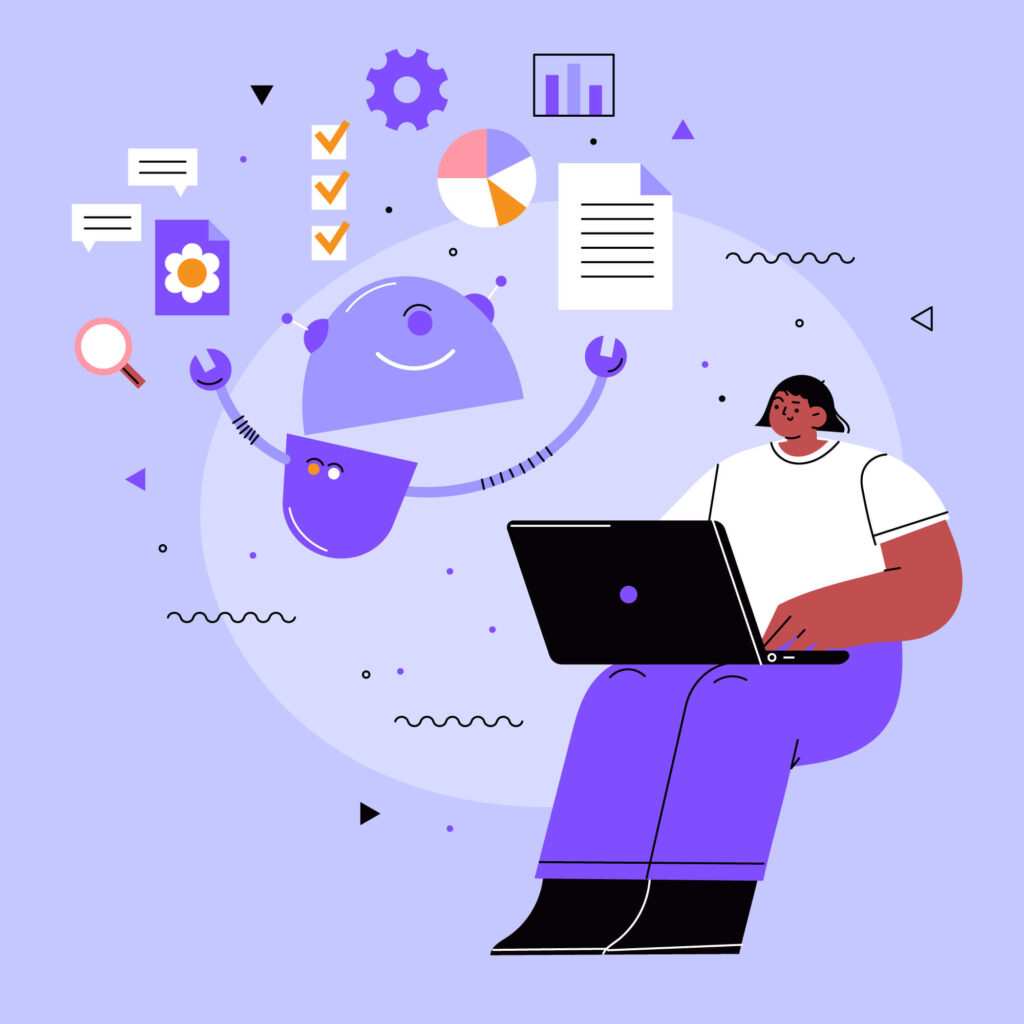
In the wake of the COVID-19 pandemic, the job market landscape underwent a seismic shift. The artificial intelligence (AI) sector, in particular, experienced both challenges and opportunities. How has the AI job market adapted to this changing landscape? What skills are now in demand, and how can job seekers and employers navigate this evolving terrain? This article delves into the post-COVID-19 AI job market, exploring the intricacies and transformations that have taken place.
The Pre-Pandemic AI Landscape: A Quick Recap
Before we dive into the post-COVID-19 changes, let’s briefly revisit the AI job market pre-pandemic. AI was on an upward trajectory, with companies actively recruiting AI specialists, data scientists, and machine learning engineers. Startups and tech giants alike were investing heavily in AI-driven projects, fueling a steady demand for talent.
What Were the Dominant Trends?
- Explosive Growth: The AI sector witnessed exponential growth with applications ranging from healthcare to finance.
- Specialized Roles: Job titles like “AI Ethicists” and “AI Product Managers” emerged.
- AI in Remote Work: Remote work trends were emerging, but AI positions often required in-person collaboration.
Impact of COVID-19: Challenges and Transformations
The arrival of the pandemic posed unique challenges for the AI job market, reflecting broader shifts in the world of work. It prompted a reassessment of skills, adaptability, and the role of remote work.
How Did COVID-19 Impact the AI Job Market?
- Remote Work Prevalence: With lockdowns in place, remote work became the norm even in AI, altering collaboration dynamics.
- Economic Uncertainty: Economic instability led to reduced hiring, particularly in industries hit hard by the pandemic.
- Skill Prioritization: Employers began prioritizing adaptability, communication, and remote collaboration skills alongside technical proficiency.
Resilience and Adaptation in AI Employment

Despite the challenges, the AI job market displayed remarkable resilience. Professionals and organizations adapted to the ‘new normal,’ capitalizing on opportunities arising from the crisis.
How Did the AI Sector Adapt?
- Skill Diversification: AI professionals diversified their skill sets to remain versatile, incorporating skills like project management and remote teamwork.
- Increased Online Learning: Online courses and certifications saw a surge in enrollment, with individuals upskilling from home.
- Innovation Acceleration: The crisis accelerated AI innovation, with applications in healthcare, supply chain management, and remote monitoring.
Top Skills in Demand: What Employers Seek in a Post-COVID World
As the AI landscape evolved, so did the skills in demand. To stand out in the post-COVID AI job market, professionals need to possess a unique blend of technical prowess and adaptability.
What Skills Are Employers Looking For?
| Skill | Description |
| Machine Learning | Continues to be a cornerstone, with a focus on ethics. |
| Data Interpretation | Ability to make data-driven decisions in remote settings. |
| Communication | Strong interpersonal skills for remote collaboration. |
| Adaptability | Capacity to pivot quickly in response to changing needs. |
| AI Ethics | Addressing ethical concerns in AI applications. |
Remote Work in the AI Sphere: The New Norm
Remote work isn’t just a short-lived trend; it’s here to stay. How does this impact AI professionals, and how can they thrive in this environment?
Pros and Cons of Remote Work in AI
Pros:
- Global Talent Pool: Access to a diverse talent pool from across the world.
- Work-Life Balance: Improved work-life balance and reduced commuting stress.
- Cost Savings: Reduced operational costs for organizations.
Cons:
- Communication Challenges: Overcoming time zone differences and communication hurdles.
- Isolation: Potential feelings of isolation and disconnection from the team.
- Security Concerns: Addressing data security issues in a remote setting.
Navigating the Post-COVID AI Job Market
So, how can job seekers and organizations navigate the evolving AI job market successfully?
Tips for Job Seekers:
- Skill Up: Continuously upgrade your skills to meet the changing demands of the AI industry.
- Build a Digital Presence: Create an online portfolio or personal brand to showcase your expertise.
- Networking: Connect with peers and mentors virtually to stay updated and foster professional relationships.
Tips for Employers:
- Flexible Work Policies: Develop flexible remote work policies that accommodate AI professionals’ needs.
- Invest in Training: Provide ongoing training opportunities to upskill your team.
- Diversity and Inclusion: Prioritize diversity and inclusion in your AI workforce for innovative solutions.
The Road Ahead: What Does the Future Hold for AI Employment?

The AI job market post-COVID-19 is marked by adaptation, resilience, and a stronger emphasis on remote work capabilities. As AI continues to shape industries and redefine job roles, staying agile and responsive to change will be crucial for both individuals and organizations.
Questions to Ponder:
- How will AI impact other industries, post-pandemic?
- What ethical considerations should be at the forefront of AI development?
- Will AI redefine the traditional office workspace permanently?
Embracing Change: The Future of AI Employment
In conclusion, the AI job market has weathered the storm of COVID-19, emerging more adaptable and resilient than ever before. The skills in demand have shifted, remote work is the new norm, and both job seekers and employers must embrace change to thrive in this evolving landscape. As we move forward, it’s essential to stay informed, connected, and ready to embrace the future of AI employment.
Continuous Learning in AI: A Key to Success
One aspect that cannot be emphasized enough in the post-COVID AI job market is the importance of continuous learning. The field of artificial intelligence is dynamic, with new developments and breakthroughs occurring regularly. To remain competitive, AI professionals must commit to ongoing education and skills enhancement:
- Online Courses: Online learning platforms offer a wealth of courses related to AI, machine learning, and data science. These courses provide the flexibility to learn at your own pace and from anywhere in the world. Many of them also offer certifications that can bolster your resume.
- AI Conferences and Webinars: Attending AI conferences and webinars is an excellent way to stay updated on the latest trends and network with experts in the field. While in-person events have been limited due to the pandemic, virtual conferences have become more prevalent, making it easier for professionals to participate.
- AI Communities and Forums: Joining AI communities and online forums allows you to connect with like-minded individuals, seek advice, and share knowledge. Websites like GitHub and Stack Overflow are valuable resources for AI practitioners.
- Books and Research Papers: Don’t underestimate the value of traditional resources. Books authored by AI experts and research papers published in reputable journals can provide in-depth insights into specific AI topics.
The Global Impact of AI Post-Pandemic
The COVID-19 pandemic accelerated the adoption of AI across various industries. From healthcare to retail, AI played a pivotal role in addressing challenges and enhancing operational efficiency. As we look to the future, it’s important to consider the global impact of AI beyond the immediate job market:
- Healthcare: AI-powered diagnostics and treatment recommendations have the potential to revolutionize healthcare. Remote patient monitoring, drug discovery, and personalized medicine are areas where AI is making significant contributions.
- Finance: AI-driven algorithms are used for fraud detection, risk assessment, and algorithmic trading. These applications have become even more critical in a rapidly changing economic landscape.
- Manufacturing: AI-powered automation and predictive maintenance have improved efficiency in manufacturing processes. This has allowed companies to adapt quickly to disruptions in the supply chain, such as those caused by the pandemic.
- Sustainability: AI is increasingly employed in sustainability efforts, helping to optimize energy consumption, reduce waste, and mitigate environmental impact. Its role in addressing global challenges like climate change is becoming more pronounced.
The Ethical Imperative in AI
As AI continues to evolve and reshape industries, ethical considerations become paramount. The AI community recognizes the need for responsible development and deployment of AI technologies. Addressing bias, ensuring transparency, and upholding privacy rights are central to the ethical use of AI:
- Addressing Bias: AI algorithms can inherit biases present in training data. Efforts to identify and mitigate bias in AI systems are ongoing to ensure fair and equitable outcomes.
- Transparency: AI models should be transparent in their decision-making processes. Explainable AI (XAI) is an emerging field that aims to make AI algorithms more understandable to humans.
- Privacy: AI applications often involve the collection and analysis of vast amounts of data. Protecting individuals’ privacy rights while using this data is a critical ethical consideration.
- Regulation and Standards: Governments and industry bodies are developing regulations and standards for AI to ensure ethical and responsible use. Compliance with these guidelines is essential for organizations.
In the post-COVID AI landscape, ethical considerations will continue to shape the direction of AI development and deployment. Professionals in the field must stay attuned to these ethical imperatives and actively contribute to responsible AI practices.
Embracing Change and Thriving in the Post-COVID AI Job Market
The post-COVID AI job market is a dynamic and evolving landscape. It has weathered the challenges posed by the pandemic and emerged stronger, with a focus on remote work, adaptability, and ethical considerations. Job seekers and employers alike must recognize the importance of continuous learning, global impact, and ethical responsibility in the AI field.
As AI continues to redefine industries and job roles, individuals and organizations that embrace change and stay committed to growth will be best positioned for success. Whether you’re a seasoned AI professional or just beginning your journey in the field, the future holds exciting opportunities for those ready to adapt and innovate in this ever-changing landscape.
Frequently Asked Questions (FAQs) About the AI Job Market Post-COVID-19
As the AI job market undergoes significant changes in the wake of COVID-19, it’s natural to have questions about how these shifts may impact job seekers and employers. Here, we address some of the most commonly asked questions about the AI job market post-pandemic.
Q1: What is the current state of the AI job market post-COVID-19?
A1: The AI job market has shown resilience and adaptability post-COVID-19. While there were initial challenges, the industry has rebounded, with a strong focus on remote work and a demand for skills that include machine learning, data interpretation, communication, adaptability, and AI ethics.
Q2: How has remote work affected AI job opportunities?
A2: Remote work has become the new norm in the AI job market. This shift has expanded the talent pool for employers, improved work-life balance for professionals, and reduced operational costs. However, it has also brought challenges, such as communication hurdles and security concerns.
Q3: What skills are most in-demand for AI professionals in the post-pandemic era?
A3: Employers are seeking AI professionals with a combination of technical skills like machine learning and data interpretation, as well as soft skills like communication and adaptability. AI ethics is also gaining importance as companies aim to address ethical concerns in AI applications.
Q4: How can job seekers stay competitive in the evolving AI job market?
A4: To stay competitive, job seekers should continually upgrade their skills to meet industry demands. Building a digital presence, networking with peers and mentors virtually, and showcasing expertise through online portfolios or personal branding are also valuable strategies.
Q5: What can employers do to attract and retain top AI talent in this changing landscape?
A5: Employers can develop flexible remote work policies, invest in ongoing training opportunities for their AI teams, and prioritize diversity and inclusion to attract and retain top AI talent. Providing a supportive and inclusive work environment is essential.
Q6: What does the future hold for AI employment, considering the post-COVID-19 landscape?
A6: The future of AI employment will likely continue to evolve, with a strong emphasis on remote work capabilities and ethical considerations in AI development. AI is expected to impact various industries, and traditional office workspaces may undergo permanent transformations.
Q7: Are there opportunities for AI professionals to work in industries beyond tech?
A7: Yes, AI professionals can find opportunities in a wide range of industries, including healthcare, finance, manufacturing, and more. AI’s applications are diverse and continue to expand, creating opportunities in various sectors.
Q8: How important is networking in the AI job market post-COVID-19?
A8: Networking remains crucial in the AI job market. Virtual networking allows professionals to stay updated on industry trends, connect with peers and mentors, and discover job opportunities. Building and nurturing professional relationships can lead to career growth.
Q9: What advice do you have for organizations looking to integrate AI into their operations post-pandemic?
A9: Organizations should start by understanding their specific AI needs and goals. They should invest in AI talent, provide training, and ensure ethical AI practices. Collaborating with experts and staying updated on AI advancements is also essential for successful integration.
Q10: How can individuals and organizations stay informed about AI trends and developments?
A10: Staying informed in the AI field requires continuous learning. Individuals can enroll in online courses and attend virtual conferences. Organizations can establish partnerships with AI research institutions and encourage employees to share knowledge through internal channels.